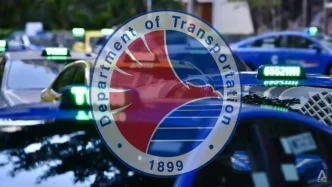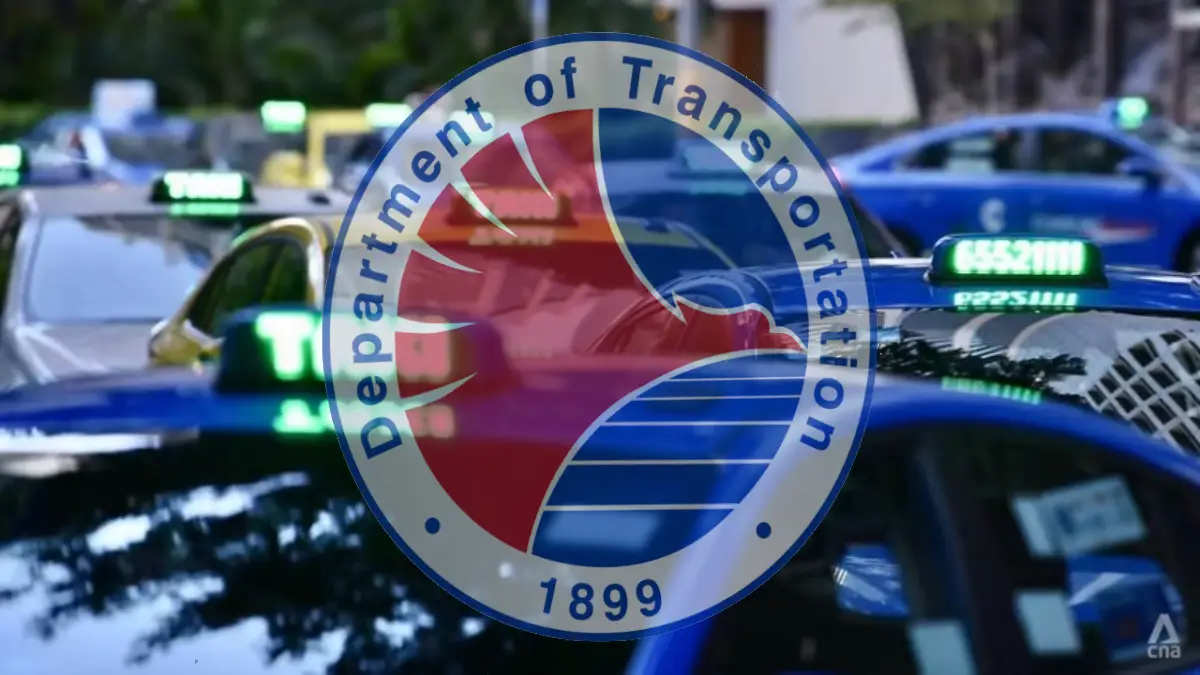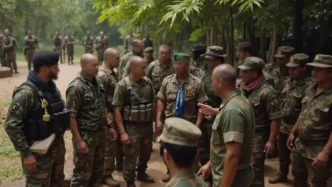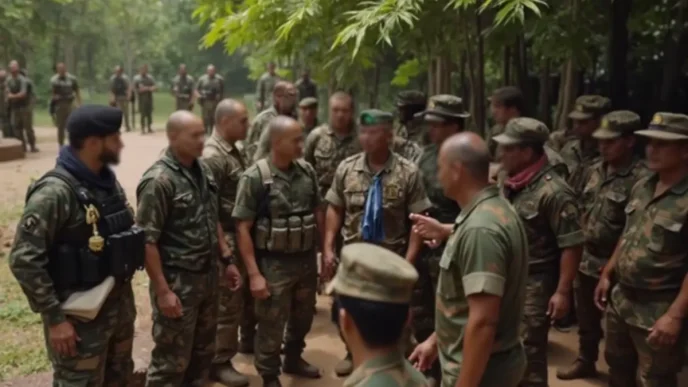In a unique approach to curbing illicit practices at the Ninoy Aquino International Airport (Naia) and other airports across the Philippines, the Philippine National Police Aviation Security Group (PNP Avsegroup) has enlisted the help of volunteer taxi drivers to report on colorum (unregistered) taxis and overcharging cabbies. This intelligence-driven operation, which blends community involvement with law enforcement, has sparked both interest and concern over its implications for fairness and accountability in the transport sector.
A New Strategy to Combat Airport Taxi Scams
The issue of overcharging and unregistered taxis at Philippine airports has long plagued travelers, tarnishing the country’s reputation as a tourist destination. In response, the PNP Avsegroup has rolled out a novel initiative involving volunteer taxi drivers—often friends or relatives of police personnel—who act as informants to identify errant drivers. According to Brigadier General Jason Capoy, the acting director of PNP Avsegroup, these volunteers play a crucial role in gathering actionable intelligence.
“We have volunteers who are other taxi drivers, friends, relatives of the PNP troops. They are the ones who brought the news. They are the ones who report it to us. That’s why we just provide information with LTO (Land Transportation Office) and we just help them in enforcing the traffic rules,” Capoy explained in an interview with INQUIRER.net on July 2, 2025.
Capoy emphasized that the goal is not to vilify all taxi drivers but to target those who exploit passengers. “Not all [taxi drivers] want to overcharge, not all of them. We just teach the others a lesson,” he added. This selective approach aims to deter malpractice while preserving the livelihoods of honest drivers.
Intelligence-Driven Operations Yield Results
From June 25 to July 1, 2025, the PNP Avsegroup reported apprehending 46 public utility vehicles (PUVs) at various Philippine airports, including 28 PUVs, seven UV Expresses, and 11 “habal-habal” motorcycles—informal motorbike taxis often operating without permits. Capoy revealed that 20 to 30 percent of these apprehensions were directly linked to tips from volunteer taxi drivers, underscoring their impact on the operation’s success.
Unlike traditional enforcement methods, this strategy relies heavily on prior monitoring and validation. Volunteers report incidents of colorum taxis or overcharging directly to PNP Avsegroup’s “intelligence people on the ground” via calls or text messages. Once a report is received, the unit conducts immediate verification before taking action. “This is more on, this is a different approach. It is an intelligence-driven operation. It is not just the ones that were planted down; it is not. We have prior monitoring,” Capoy noted.
This method, while innovative, raises questions about the reliability of volunteer reports and the potential for bias, especially given the personal connections between volunteers and PNP personnel. Without stringent oversight, there is a risk that personal grudges or competitive rivalries among drivers could lead to false accusations, undermining the initiative’s credibility.
Context of Corruption and Extortion at Naia
The volunteer program emerges against a backdrop of systemic issues at Naia, where allegations of corruption and extortion have frequently made headlines. Reports of airport personnel colluding with taxi drivers to extort passengers have prompted public outcry and government action. Just recently, the Department of Transportation (DOTr) dismissed five airport police officers for their alleged involvement in extorting Naia cabbies, highlighting the depth of misconduct within the system.
The PNP Avsegroup itself has faced scrutiny over similar accusations, with warnings issued to Naia personnel implicated in “taxi driver extortion schemes.” These incidents suggest a complex web of complicity that extends beyond rogue drivers to include some officials tasked with maintaining order. The introduction of volunteer informants, while aimed at addressing overcharging, must navigate this murky landscape to avoid becoming another tool for exploitation or favoritism.
Broader Implications for Airport Security and Public Trust
The use of volunteer taxi drivers as informants represents a shift toward community-based policing, a model that can foster closer ties between law enforcement and civilians. By involving drivers who are familiar with the airport transport ecosystem, the PNP Avsegroup gains access to insider knowledge that might otherwise remain hidden. This approach could serve as a blueprint for other sectors where informal networks dominate, provided safeguards are in place to prevent abuse.
However, the initiative also poses significant challenges to transparency and accountability. The reliance on volunteers who are personally connected to PNP personnel raises concerns about impartiality. If reports are influenced by personal relationships or ulterior motives, innocent drivers could be unfairly targeted, while others escape scrutiny due to favoritism. Moreover, the lack of formal training or vetting for these volunteers could lead to inconsistent or unreliable intelligence, further complicating enforcement efforts.
Public trust, already strained by past scandals at Naia, hangs in the balance. For many travelers, the airport is their first point of contact with the Philippines, and negative experiences with taxis can leave a lasting impression. While the PNP Avsegroup’s crackdown on colorum and overcharging drivers is a step in the right direction, it must be accompanied by broader reforms to address systemic corruption and ensure fair treatment for all stakeholders—drivers and passengers alike.
Balancing Enforcement with Fairness
The economic stakes for taxi drivers are high. Many rely on airport fares to support their families, and the line between fair pricing and overcharging can be blurred by fluctuating fuel costs, maintenance expenses, and competition. While some drivers undoubtedly exploit passengers, others may feel compelled to charge higher rates due to systemic pressures, including demands for “protection money” from corrupt officials or informal syndicates operating at Naia.
The PNP Avsegroup’s initiative, while targeting malpractice, must also consider these underlying factors. Punitive measures alone are unlikely to resolve the issue if drivers continue to face extortion or lack viable alternatives. A more holistic approach—combining stricter enforcement with support for legitimate drivers, such as subsidized training programs or regulated fare structures—could create a more sustainable solution.
Additionally, the government could explore technological interventions to complement the volunteer program. Ride-hailing apps, for instance, have gained traction in the Philippines as a transparent alternative to traditional taxis, offering fixed pricing and accountability through digital records. Expanding access to such platforms at airports, alongside dedicated pickup zones for accredited drivers, could reduce the incidence of overcharging and colorum operations.
Regional Context and Comparative Analysis
The challenge of regulating airport taxis is not unique to the Philippines. Across Southeast Asia, major hubs like Bangkok’s Suvarnabhumi Airport and Jakarta’s Soekarno-Hatta International Airport have grappled with similar issues of overcharging and unregistered transport services. In Thailand, authorities have implemented queue systems and mandatory fare meters to standardize pricing, though enforcement remains inconsistent. Indonesia, meanwhile, has promoted airport-specific taxi cooperatives to ensure accountability, with mixed results.
The Philippines’ volunteer informant model offers a distinct contrast to these top-down approaches, prioritizing grassroots intelligence over centralized regulation. If successful, it could inspire other countries to experiment with community-driven solutions. However, its effectiveness will depend on the PNP Avsegroup’s ability to address concerns over bias and ensure that volunteers operate within a clear ethical framework.
Looking Ahead: A Test for Reform
As the PNP Avsegroup continues to refine its operations at Naia and beyond, the volunteer taxi driver program will serve as a litmus test for innovative policing in the Philippines. Balancing the need for strict enforcement with fairness to drivers is no easy task, especially in an environment rife with corruption and competing interests. The coming months will reveal whether this initiative can deliver lasting change or if it risks becoming another chapter in the long history of airport transport woes.
For now, travelers passing through Philippine airports may find some reassurance in the heightened vigilance against overcharging. Yet, the broader question remains: can a system reliant on personal networks and informal reporting truly transform an industry plagued by systemic flaws? Only time—and rigorous oversight—will tell.
















